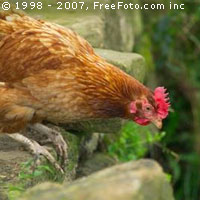Avian flu vaccines safe, say EFSA experts
Vaccination programmes using drugs currently available on the market are providing a safe and effective means of protecting domestic poultry from outbreaks of highly pathogenic strains of avian flu (H5N1), according to the latest scientific opinion to be released by the European Food Safety Authority (EFSA). Since the emergence of H5N1 bird flu in South East Asia and its westward spread, prevention and control methods have come under increased scrutiny. Several control measures are currently in place in Europe, such as controlling animal and human movements on farms. These are seen as the first line of protection against the introduction and spread of the disease among poultry such as chicken and ducks. These measures are also believed to reduce the risk of the reintroduction of the disease to wild birds from domestic poultry. If birds do become infected, measures are taken to eradicate or cull the infected flocks. However, as new scientific developments and vaccination data become available, vaccination is moving more and more to the forefront as a complementary tool to control and prevent the propagation of the disease. In its latest scientific opinion, the EFSA examined the most recent market-approved vaccines against the H5 ands H7 strains of the disease for poultry and other captive birds, as well the laboratory testing methods used for the surveillance of vaccinated poultry. It concluded that current EU authorised vaccines for poultry, such as chickens and ducks, are meeting the relevant quality standards and are thus safe and effective to be used. However, for other poultry and captive bird species, the EFSA found that the level of effectiveness of current bird flu vaccinations is not sufficiently known and therefore additional data on the immunogenicity and effectiveness of current and future vaccines should be generated. In terms of any potential human health impact of the animal vaccines, the EFSA says that the use of these authorised vaccines is safe and has no negative effect on poultry products for consumers. In addition, according to the EFSA and the European Centre of Disease Prevention and Control (ECDC) representatives, if H5/H7 strains were to become endemic in EU regions in the future as they are presently in some parts of Asia, vaccination of domestic poultry might also reduce the potential for human and other animal cases. The scientific opinion was requested by the European Commission, and its findings are expected to be used as the basis for the further development of an EU avian flu vaccination policy.

